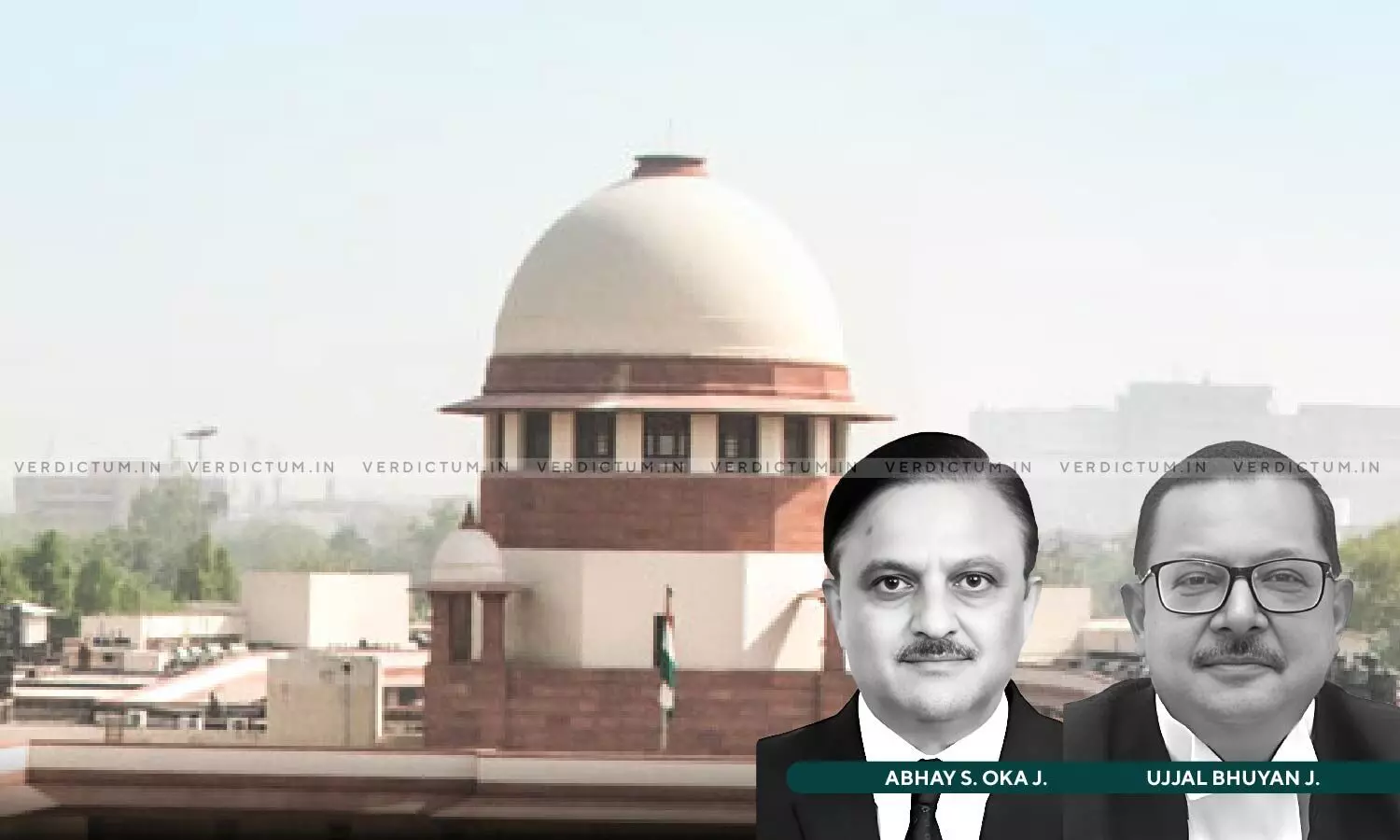
Circumstances Not Consistent With Hypothesis Of Guilt: SC Acquits Man In 3 Decades Old Murder Case
 |
|The Supreme Court set aside concurrent conviction of a man accused in a three decades old murder case.
The Court said that the facts established by the prosecution were not consistent with the hypothesis of the guilt.
The Court stated that the circumstances of the case forming part of the chain of circumstances were not duly proved by the prosecution.
Justice Abhay S. Oka and Justice Ujjal Bhuyan observed, “Thus, the recovery of the weapon at the instance of the appellant has not been proved. Therefore, it cannot be said that all the circumstances forming part of the chain of circumstances have been duly proved…The circumstance of last seen together is a very weak circumstance in the facts of the case. The circumstances brought on record are not conclusive in nature.”
Sr. Advocate Anil Kaushik represented the appellant, while Advocate Samridhi S. Jain appeared for the respondent.
The Sessions Court had convicted the appellant for the offences punishable under Sections 302 and 201 of the IPC back in 1995. This decision was confirmed by the High Court later in 2017. However, the Supreme Court stated that the prosecution’s case was based on circumstantial evidence.
The appellant had argued that the last seen together was a very weak circumstance as there was evidence on record that he was related to the deceased and used to frequently drink together.
The Supreme Court referred to the decision in Sharad Birdhichand Sarda v. State of Maharashtra (1984) 4 SCC 116 where it was established that the circumstances from which the conclusion of guilt is to be drawn should be fully established.
Since there was no dispute or altercation between the appellant and the deceased, the Court pointed out that the deceased being in company of the appellant was not an unusual circumstance. “This makes the case based on the theory of last seen together very weak in absence of motive.” The Court also pointed out that the discovery of the murder weapon was also not proved.
Accordingly, the Supreme Court allowed the appeal and set aside the order of conviction.
Cause Title: Arun Shankar v. The State Of Madhya Pradesh (Neutral Citation: 2024 INSC 298)
Appearance:
Appellant: Sr. Advocate Anil Kaushik; AOR Nikhil Jain; Advocates Abhishek Mishra, Rajat Rana and Mayank Gautam
Respondent: AOR Sunny Choudhary and Advocate Samridhi S. Jain